Introduction
In the age of screens, speed, and endless scrolling, one of the most overlooked aspects of human happiness is something timeless social relationships. Whether it’s our family, friends, colleagues, or community connections, our social world profoundly shapes who we are and how we feel. Psychologists and wellness experts agree: social relationships and wellbeing are deeply intertwined. We are wired for connection, and the quality of our relationships often determines the quality of our lives. Yet, in a world that glorifies independence, many people find themselves feeling disconnected, lonely, or emotionally drained. Understanding how our relationships influence wellbeing can transform not only how we interact with others but also how we care for ourselves.
The Link Between Social Connection and Emotional Health
Human beings are social by nature. From infancy to old age, we seek comfort, understanding, and belonging. When we feel connected, our brains release oxytocin a hormone that promotes trust and reduces stress. Conversely, isolation can increase cortisol levels, leading to anxiety, fatigue, and even physical illness. Research consistently shows that people with strong social relationships are happier, live longer, and recover faster from illnesses. Emotional support acts as a buffer against life’s challenges. When you know someone truly cares about your wellbeing, your emotional resilience naturally strengthens. Think about the last time you shared laughter with a close friend or had an honest conversation with someone who truly listened. Those moments of connection don’t just feel good they are good for you. They regulate emotions, boost your mood, and remind you that you’re not alone in your struggles.
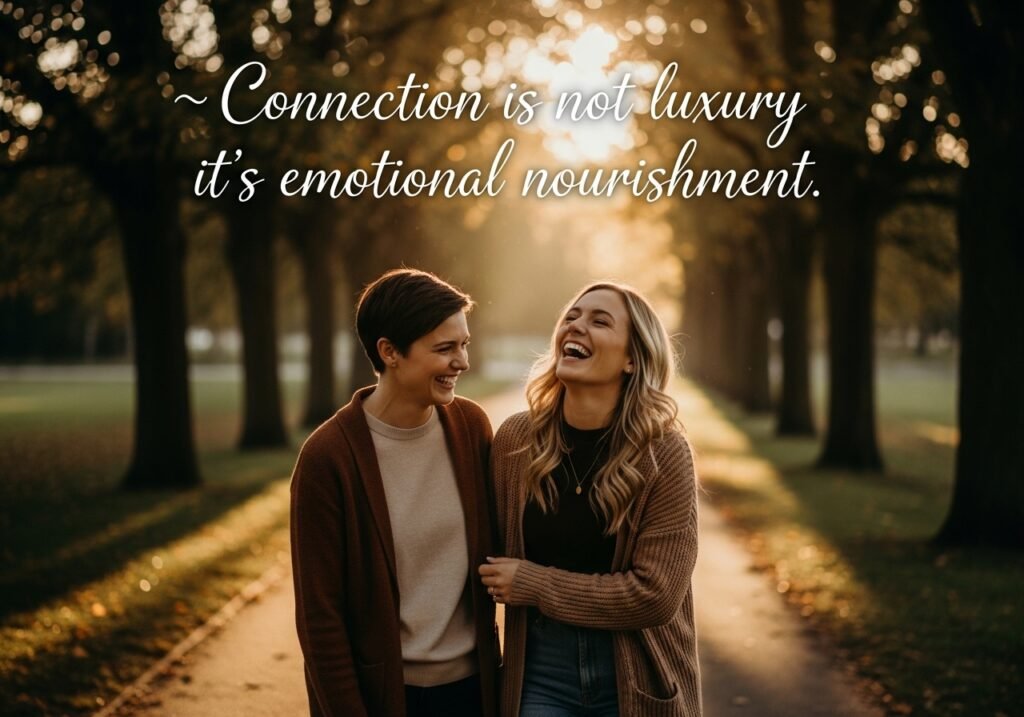
The Quality of Relationships Matters More Than Quantity
Many people mistake popularity for connection. Having hundreds of online “friends” or followers doesn’t necessarily mean you have meaningful relationships. In fact, quality relationships those built on trust, empathy, and mutual respect have far greater impact on wellbeing than the number of people you know. A deep friendship where you can be your authentic self is far more valuable than multiple surface-level connections. True belonging comes from being accepted as you are, not for what you can offer. Healthy social relationships are like mirrors they reflect who you are and who you can become. When surrounded by positive and supportive people, you naturally grow in confidence, empathy, and purpose.
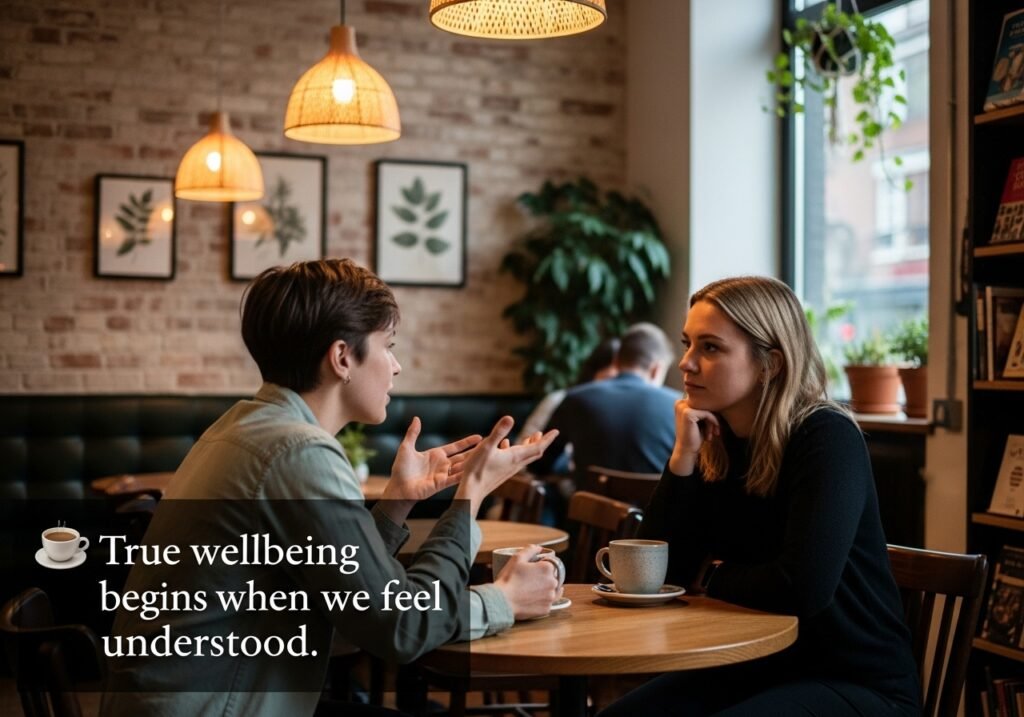
Social Support and Mental Health
Our social networks play a vital role in mental health. Supportive relationships can reduce the risk of depression, anxiety, and stress-related disorders. They give us a sense of stability during turbulent times. For instance, when facing loss, a listening friend can make grief more bearable. During periods of self-doubt, encouragement from family or mentors can restore confidence. Social connections create a psychological safety net a sense that even when life feels heavy, someone has your back. However, toxic or unbalanced relationships can have the opposite effect. Constant criticism, manipulation, or neglect from those close to us can erode self-esteem and create emotional exhaustion. That’s why part of protecting your wellbeing includes setting boundaries and prioritizing relationships that uplift rather than drain.
Social Relationships and Physical Wellbeing
It’s fascinating that social relationships don’t just affect emotions they influence physical health too. Studies have shown that people with strong social ties have lower blood pressure, better immune function, and even longer lifespans. Loneliness, on the other hand, can be as harmful to your health as smoking or obesity. Chronic isolation increases the risk of heart disease, dementia, and inflammation. Our bodies literally respond to connection when we feel safe, loved, and supported, we thrive. Small acts of connection a smile, a kind word, a phone call have measurable effects on the body’s stress response. Social bonding is not just about happiness; it’s about survival and vitality.
The Role of Community in Wellbeing
Beyond personal relationships, community plays an equally important role in wellbeing. Humans have always lived in groups tribes, neighborhoods, or families. Feeling part of something larger than yourself gives life meaning and purpose. Engaging in community service, joining clubs, or participating in group activities strengthens your sense of belonging. It reminds you that you’re part of a shared human experience. Communities provide a space for empathy, shared joy, and collective healing. In times of crisis, communities often become the most powerful source of comfort and hope. Whether it’s neighbors helping during a disaster or a group of friends supporting someone through hardship, collective connection nurtures both emotional and social wellbeing.
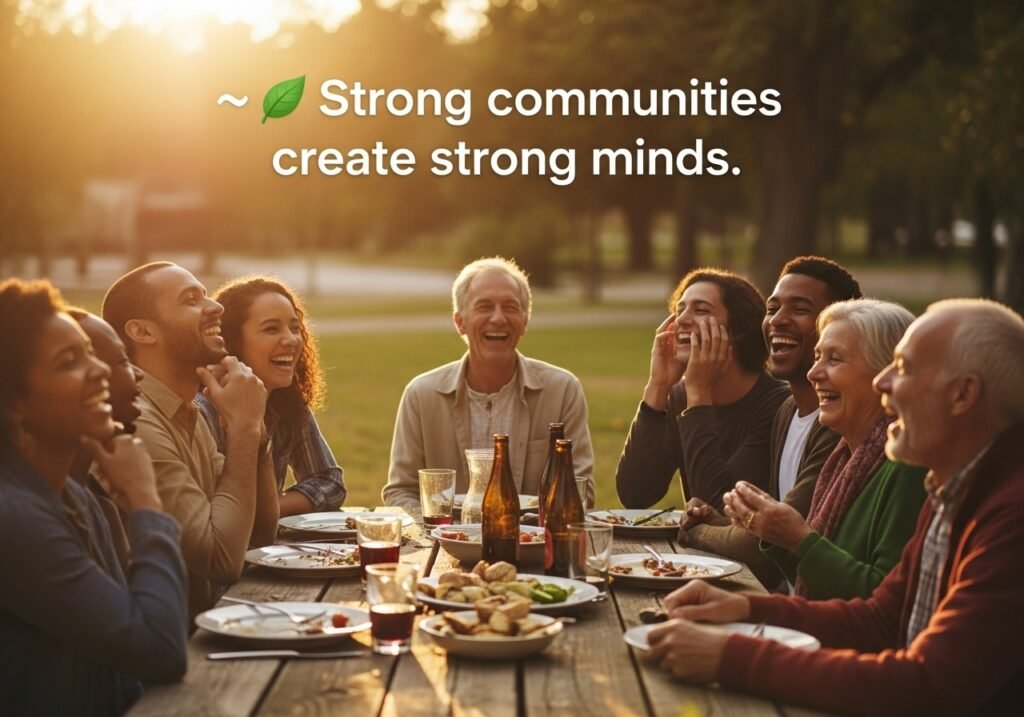
Building and Nurturing Healthy Social Relationships
Social relationships require care, intention, and consistency. Just like physical health, emotional and social wellbeing need regular maintenance. Start by being fully present in your interactions. Put away distractions when talking to others. Listen with empathy not to respond, but to understand. Small gestures like remembering someone’s name, offering help, or sending a kind message can strengthen bonds over time. Another key to social wellbeing is vulnerability. Opening up about your feelings creates authenticity and invites deeper connections. When you show your true self, others feel safe to do the same. Equally important is setting healthy boundaries. It’s okay to protect your energy from negative influences. Not every relationship deserves equal access to your emotional space. Healthy relationships respect individuality while supporting togetherness.
Digital Relationships: Connection or Illusion?
In the digital age, we can connect with anyone, anywhere yet loneliness has become one of the most common modern struggles. Social media can create the illusion of closeness while often deepening disconnection. While online platforms can help maintain long-distance friendships and communities, they should never replace real human contact. A heartfelt conversation, shared laughter, or simple hug has far more emotional impact than a “like” or emoji reaction. To maintain social wellbeing, use technology mindfully. Engage with intention, not comparison. Choose connection over consumption reach out to real people, share meaningfully, and nurture offline bonds whenever possible.
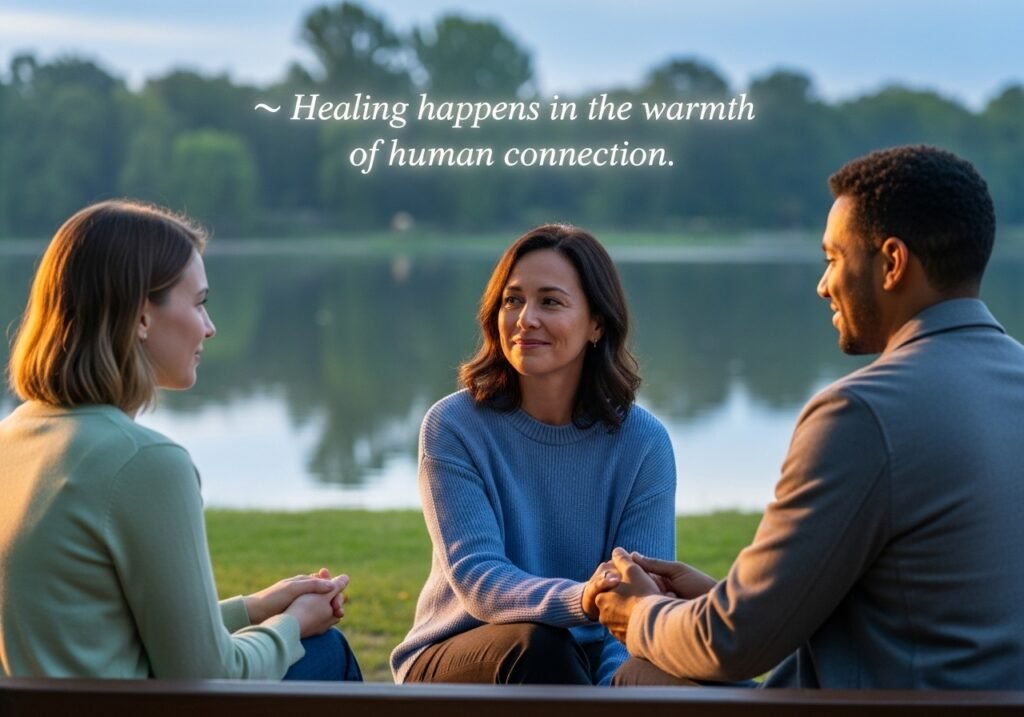
The Ripple Effect of Healthy Social Relationships
When you invest in healthy social relationships, you don’t just improve your own wellbeing you positively influence those around you. Acts of kindness, listening, and empathy spread emotional warmth that ripples through families, workplaces, and communities. Healthy relationships create emotionally safe environments where people feel seen, valued, and supported. That collective wellbeing fosters creativity, cooperation, and peace the very elements our world needs more of. Building stronger connections starts with one person choosing to be kind, to listen, and to care. When we prioritize relationships over routine, and empathy over ego, the entire social fabric strengthens.
Conclusion
True wellbeing isn’t just about physical health, success, or self-care routines it’s about connection. Humans thrive in the warmth of shared emotions, mutual support, and belonging. Social relationships are the threads that weave meaning into our lives. They teach us compassion, resilience, and joy. Whether it’s a friend who listens, a coworker who understands, or a community that stands by you each connection adds to your overall sense of wellbeing. Nurturing these bonds requires time, attention, and authenticity, but the reward is immeasurable: a life filled with deeper connection, emotional balance, and genuine happiness. Because at the end of the day, our wellbeing grows where our relationships are rooted in love and understanding.
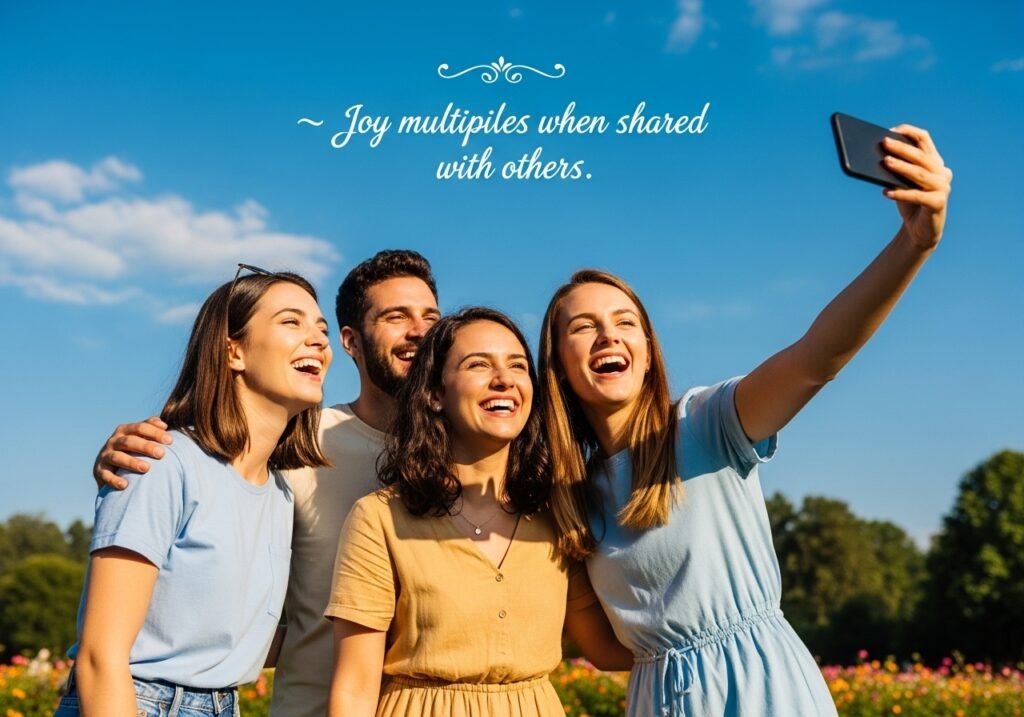
FAQS
1. How do social relationships impact mental and emotional wellbeing?
Social relationships provide emotional support, belonging, and a sense of purpose. When we have healthy social ties, our brain releases positive hormones like oxytocin and serotonin that reduce stress, anxiety, and depression. On the other hand, loneliness or toxic relationships can negatively affect self-esteem and increase the risk of mental health issues.
2. What are practical ways to build stronger social connections?
Start by being genuinely present in conversations, practicing empathy, and showing appreciation. Join community groups, volunteer, or reconnect with old friends. Keep communication consistent and authentic real bonds grow through time, honesty, and care. Setting healthy boundaries also helps ensure your relationships stay balanced and respectful.